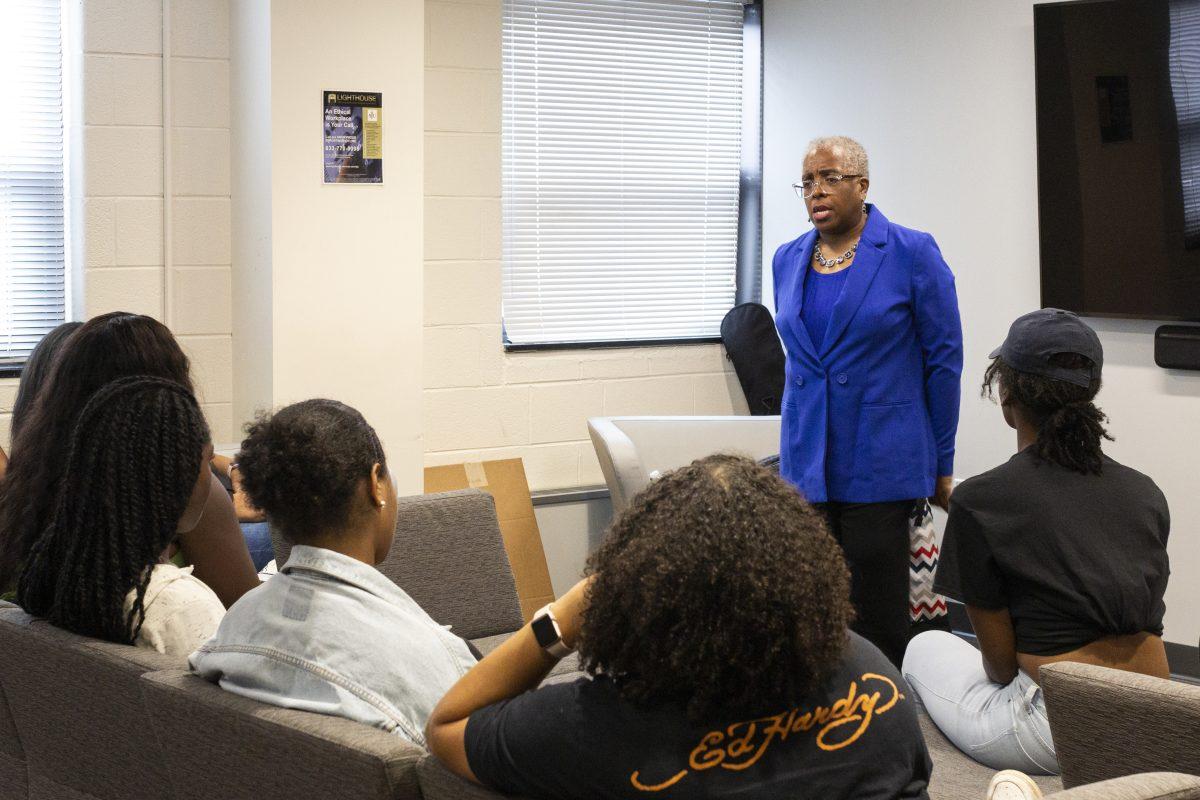Shawnee Daniels-Sykes, Ph.D., spoke to St. Joe’s faculty and students during the Day of Learning on Catholic Social Teaching and Racism on Sept. 26.
Daniels-Sykes, an associate professor of theology and ethics at Mount Mary University and the only black Catholic female health care ethicist in the U.S., researches issues of institutionalized race, class and gender oppression. Daniels-Sykes met with St. Joe’s faculty members at 11 a.m., spoke to two combined classes in McShain Residence Center and held a student meeting in the Center for Inclusion and Diversity.
Throughout the day, her biggest message was providing safe spaces for people to be able to voice their feelings and concerns about inclusivity.
“What I come to you with is an openness to explore,” Daniels-Sykes said. “To explore those things that have caused us hurt and harm, and to also look at the joys amidst those struggles, the hope. I tend to be an optimist, but I’m also a realist, and wanting to deal with those things that cause us pain, but not wallow in pity city, but to figure out, OK where do we go from here.”
The program was sponsored by the Faith-Justice Institute’s Joseph William and Madeline Eberle Klein Fund, which was created with the mission to educate people on the marginalization of those who have been excluded from the Catholic Church. Annie Bole, M.S.W., the lectures and programming assistant at the Faith-Justice Institute, said the fund is always looking for programs to address racism on campus.
“This program was really designed as a response to the events that unfolded last year as a way to continue the conversations about racism and what it will take to move us towards becoming a more inclusive campus,” Bole said.
During the student meeting, Daniels-Sykes took questions and comments from students, with topics ranging from cultural appropriation to a lack of diversity among faculty. After the student meeting, Fatmata Sakho ’21 said that the lack of inclusion that she feels on St. Joe’s campus is not always obvious.
“There’s a barrier here at St. Joe’s that’s not really visible, but you can feel it,” Sakho said. “I think what we need is a cultural understanding of each other.”
Beth Ford McNamee, assistant director of Campus Ministry, who attended the faculty session, said the most important thing she realized is the St. Joe’s community needs to create more spaces for students and faculty to speak about their experiences.
“Really listening and showing up to hear students stories who have experienced marginalization,” Ford McNamee said. “I think if more people showed up to those spaces to hear students stories, faculty and staff stories, we might be in a different place.”
Daniels-Sykes said creating a more inclusive and diverse campus starts with creating spaces and having conversations, but there is still much more to do.
“In that [span] of about 450 years,” Daniels-Sykes said. “We’ve had about 400 years of segregation and about 50 years of de facto segregation or integration. If you look at a ruler, out of 12 inches, we’ve probably bitten off about an inch of that ruler in terms of having these cross-cultural conversations—and we have a long way to go.”
Ny Walters ’22 said the open conversation made her realize St. Joe’s needs to be more serious about diversity and inclusion.
“There’s a lot of people who say they are with and for others,” Walters said, “But do you actually stand on what you’re saying? I feel like that’s the biggest problem.”
Kylie D’Ambra ’20 contributed to this article.















































